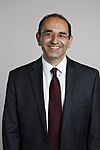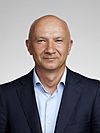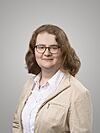Milner Award facts for kids
Quick facts for kids Royal Society Milner Award and Lecture |
|
|---|---|
| Presented by | The Royal Society |
| Reward | £5,000 |
| First awarded | 2012 |
The Royal Society Milner Award is a special prize given each year by the Royal Society. The Royal Society is a very old and respected group of scientists in London, England. This award celebrates amazing work in computer science by a researcher from Europe.
The award is named after Robin Milner. He was a brilliant computer scientist who created important things like the programming language ML. The award is supported by Microsoft Research.
To win this award, a person must be an active computer science researcher. They need to be from Europe or have lived there for at least 12 months. Winners receive a bronze medal and £5,000. They also get to give a public talk about their research. A special committee chooses the winners. This committee includes top scientists from the Royal Society and other famous academies in France and Germany.
Before the Milner Award, there was a similar prize called the Royal Society and Académie des sciences Microsoft Award. It recognized scientists in Europe who used computers to make scientific progress. That award ran from 2006 to 2009. There is also another award, the ACM SIGPLAN Robin Milner Young Researcher Award. It honors young researchers who make great contributions to programming languages.
Who Has Won the Milner Award?
The first winner of the Milner Award was Gordon Plotkin in 2012. He gave his public talk in 2013. Serge Abiteboul also received his award in 2013. In 2018, Marta Kwiatkowska became the first woman to win the award.
The 2019 winner, Eugene Myers, is American. However, he moved to Dresden, Germany, in 2012. He became a director at the Max Planck Institute there. This meant he met the rule of living in Europe for at least 12 months. Because of the COVID-19 pandemic, the 2020 award lecture was held online using Zoom.
Here is a list of the amazing people who have won the Milner Award:
| Year | Image | Recipient | Nationality | Why They Won | Ref |
|---|---|---|---|---|---|
| 2012 |  |
Gordon Plotkin | British | "for his fundamental research into programming semantics with lasting impact on both the principles and design of programming languages" | |
| 2013 |  |
Serge Abiteboul | French | "for his world leading database research with significant scientific and industrial impact" | |
| 2014 |
|
Bernhard Schölkopf | German | "for being a pioneer in machine learning whose work defined the field of 'kernel machines' which are widely used in all areas of science and industry" | |
| 2015 |  |
Thomas Henzinger | Austrian | "for his fundamental advances in the theory and practice of formal verification and synthesis of reactive, real-time, and hybrid computer systems" | |
| 2016 |  |
Xavier Leroy | French | "for his exceptional achievements in computer programming which includes the design and implementation of the OCaml programming language" | |
| 2017 |
|
Andrew Zisserman | British | "for his work on computational theory and commercial systems for geometrical images and as a pioneer in machine learning for vision" | |
| 2018 |  |
Marta Kwiatkowska | Polish | "for her contribution to the theoretical and practical development of stochastic and quantitative model checking" | |
| 2019 |  |
Eugene Myers | American | "for his development of computational techniques that have brought genome sequencing into everyday use, underpinned key biological sequencing tools, and made large scale analysis of biological images practical" | |
| 2020 |
|
Cordelia Schmid | French | "for her work in computer vision and her fundamental contributions to the representation of images and videos for visual recognition" | |
| 2021 |  |
Zoubin Ghahramani | British / Iranian | "for his fundamental contributions to probabilistic machine learning" | |
| 2022 |
|
Yvonne Rogers | British | "for contributions to Human-Computer Interaction and the design of human-centred technology" | |
| 2023 |  |
Stéphane Mallat | French | "for his key advances in the fundamental principles of wavelets, including theory for audio, image and video processing, his entrepreneurship, and for contributing significantly to advancing the understanding of deep neural networks" | |
| 2024 |  |
Artur Ekert | British / Polish | "for his pioneering contributions to quantum communication and computation, which transformed the field of quantum information science from a niche academic activity into a vibrant interdisciplinary field of industrial relevance" | |
| 2024 |  |
Iryna Gurevych | Ukrainian / German | "for her major contributions to natural language processing (NLP) and artificial intelligence that combine deep understanding of human language and cognitive faculty with the latest paradigms in machine learning" |
See also
- List of computer science awards
 | Kyle Baker |
 | Joseph Yoakum |
 | Laura Wheeler Waring |
 | Henry Ossawa Tanner |

